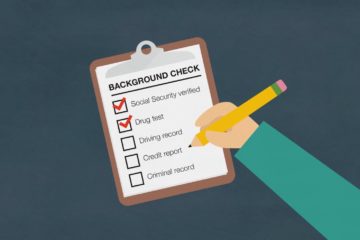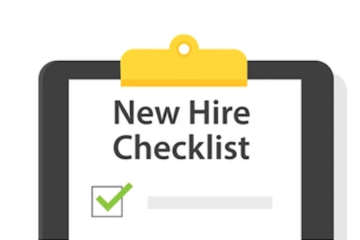What are the benefits of interviewing candidates?
Benefits of Interviewing Candidates
Here are some of the benefits that come from interviewing a job candidate:
- Learn valuable information about your candidate: Interviewing a job candidate gives you an opportunity to learn more about your prospective employee, which can help you determine whether they’re qualified for the position. For example, you can learn about their qualifications and whether their personality matches your company culture and their prospective team.
- Prevent bias: In the event you favor a candidate for a certain personality trait or skill, holding an interview with consistent review metrics helps you look at each candidate more objectively. While your bias may not be intentional, conducting candidate interviews offers you a greater perspective and can ensure you hire without any favoritism.
- Test your candidate’s skills: During an interview, you have the opportunity to see how candidates perform under stressful situations. Providing them with a test relevant to their industry or the job they’re interviewing for will give them the chance to showcase their skills and qualifications. It also allows you to assess how well they work under pressure and helps you determine whether their qualifications align with the position you’re hiring for.
- Determine the candidate’s fit with the company culture: Holding a panel interview, in particular, allows you to assess their fit with the company’s culture. A panel interview allows candidates to interact with their prospective colleagues and lets you determine how well they get along with each one.
How to interview a candidate
When you conduct an interview successfully, you get to find out more about the job candidates than the information their application offers. Asking the right questions and using the right technique can help you better assess each candidate’s skills and experience in order to determine if they’re the right fit for the role. Use these 13 tips to help you interview a candidate effectively:
1. Be prepared
Take time to prepare for each interview to help both you and the candidate get the most out of it. Here are some ways to prepare for an interview:
- Prepare a list of qualifications and duties for the job. Make a list of qualifications prior to the interview to help you know what to look for in the candidates you interview. If needed, consult with the manager or supervisor for the role to get a better idea of what they’re looking for in a new hire.
- Make a list of questions you want to ask. During an interview, prepare to ask both common and role-specific questions. Use the job description you created for the role to guide the creation of your interview questions.
- Make sure the questions you ask get them to elaborate on their qualifications and allow you to gain insight regarding their potential fit with your company’s culture.
- As you make a list of questions, leave space to take notes during the interview.
- Review the resume. Before you interview a candidate, look over their resume to get an idea of their qualifications and skills. Take note of anything you’d like them to elaborate on during the interview. You can also look up their social media accounts to get an idea of who they are.
- Consider what they may ask you. Be ready to answer any questions the candidate might have regarding the open position, employee benefits and the company at large.
- Understand your company’s goals and culture. An interview gives you the opportunity to promote your company and all that it has to offer prospective employees. To give your company a solid pitch, get to know your company’s goals and its culture so you know what to say to each candidate.
2. Take notes
During the interview, take notes of each candidates’ answers. If you’re interviewing several candidates, taking notes can help you remember each interview you conducted. You can even type up your notes after the interview. The notes you take can serve as a reference when you start to compare candidates and make a hiring decision.
3. Ask for specific details
Since candidates have the potential to exaggerate their contributions to their previous employers, seek the truth by asking specific questions.
For example, consider asking how many people they supervised with their management position or their sales numbers from last year.
Get as many numbers or dates as you can and bring them up again later in the interview to help you determine their validity.
If they lied about the details they provided you, they’re more likely to forget the information they gave you earlier in the interview.
4. Discuss salary
To ensure you’re in agreement with candidates regarding the job’s salary, ask them what their salary expectations are. If they’re hoping for more than what you’re offering, they may look for opportunities elsewhere.
5. Ask about their short-term roles
During the interview, ask about any previous roles they had that lasted less than two years. If a candidate has multiple short-term roles, it may indicate some problems.
Ask them why they left these roles.
If they talk about problems they had that will be the same with the position they’re interviewing for, they may not be the best fit for the job.
For example, if they didn’t like working early in the morning and you’re only offering an early morning shift, they may not want to continue pursuing the position.
6. Show you care
Provide your candidates with a good experience by showing that you care. Doing so can help them feel more comfortable while also helping your company’s reputation.
Even if they don’t get the job, showing you care and treating them well can still make them feel good about your company and may encourage them to apply for another position in the future.
Make sure to make them feel welcome, focus on the conversation, take your time and give them the opportunity to ask you questions at the end of the interview.
7. Provide structure to the interview
Instead of having a free-flowing conversation, provide some structure to the interview. Having structure can help you stay focused and ensures you address everything you wanted to during the interview.
For example, start with a brief description of the company and the job, then explain the job duties and end with the candidate’s questions.
The latter gives them the opportunity to ask questions about the position and the company.
8. Extend professional courtesies
At the start of the interview, make small talk with the candidate to help them feel comfortable. For example, ask them how their day has been or if they had difficulty finding the building.
You can also offer them a glass of water. If you have time, arrive at the interview early and offer to give them a tour of the office.
9. Ask the same questions
When you interview for a particular position, ask each candidate the same questions. This consistency makes it easier to compare candidates as you prepare to make a hiring decision.
10. Learn about their career goals
Apart from asking role-specific questions, aim to get a better understanding of the interviewee’s career goals. Ask them about their professional interests, where they see themselves in 10 years, and why they’re particularly interested in the position they’re interviewing for.
Asking these questions helps you understand what they expect regarding professional development. In addition, they give you an idea of how they perceive your company and the position.
11. Allow them to ask questions
Toward the end of the interview, give the candidate time to ask you any questions they have about the position and your company. This helps them evaluate whether or not they see the position as a good fit for them. It also helps you determine their level of interest in the position and their overall understanding of the company.
12. Talk about the next steps
At the end of the interview, explain the next steps in the interview process and what they can expect. Let them know when they can expect to hear back from you and what the rest of the interview process may look like. You can also let them know your timeline for filling the position.
13. Be a good listener
Throughout the interview, make sure to actively listen. Being a good listener shows your genuine interest in the candidate and gives them the encouragement they need to talk about their qualifications for the role they’re interviewing for. In addition to listening, learn to understand non-verbal cues such as body language signs which can indicate their level of interest in the position as well as their honesty.


